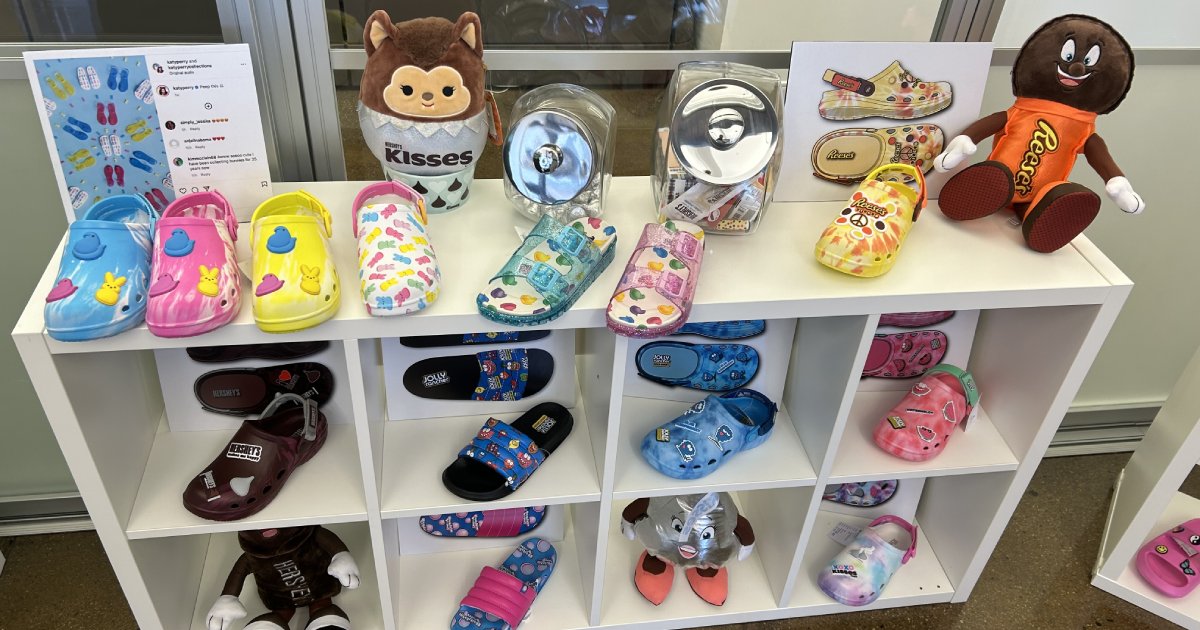Footwear’s Evergreen Focus

Footwear companies are becoming less reliant on character-based licenses as they shift toward an evergreen strategy that is less subject to the peaks and valleys of entertainment IP. This move comes as suppliers and retailers seek to clear excess inventory amid a tight and risk-averse market, footwear executives said.
That much was evident at the Fashion Footwear Association of New York (FFANY) show last week as executives reported that retailers are slowing purchase orders in order to work through a buildup of spring and summer inventory. And at the same time as footwear suppliers were displaying their spring 2024 collections, shipping dates are shifting from a more typical November-December timeframe to February-March.
SG Companies’ order bookings were down 50% from typical levels in the first quarter of this year and are only now seeing a pickup in purchase orders, said Kristy Yvars, VP of Licensing and Marketing. Suppliers are also tightening the reins on product lines, with Deckers Outdoor Corp. slashing the number of SKUs tied to the Uggs brand to 400 from 600 a year ago.
Another strategy to address inventory issues is seeing footwear companies making changes to their licensing plans. For example, SG Companies is moving away from entertainment-related licenses with the likes of Universal, Warner Bros. Discovery, and Nintendo in favor of a new line of candy-branded children’s clogs, slip-ons, and sandals (Twizzlers, Jolly Ranchers, Peeps, Reese’s). It also will continue to focus on fashion and lifestyle brands including Dockers, IZOD and BCBG.
And Esquire Brands ended its agreement with Build-A-Bear for children’s footwear in favor of an assortment that focuses on fashion brands labels like Kenneth Cole, DKNY, Jessica Simpson, and Marc Fisher.
“The character brands are so volatile because one day a brand is hot and then it’s not,” Esquire President Peter Reccamo said. “Character licenses can fizzle out, whereas a Kenneth Cole or Jessica Simpson is more stable because they aren’t going anywhere. The licensed character business [for footwear] has just gotten softer and the only one that is consistent is Disney.”
The desire for a consistency that doesn’t currently exist in the film and television landscape can be found in collaborations that have increasingly become the go-to strategy for footwear.
For example, Skechers unveiled a deal with Snoop Dogg last week for slip-ons and lace-up sneakers ($100-$125). That partnership follows an earlier agreement with The Rolling Stones. In the fashion space, footwear designer Tamara Mellon forged an agreement with licensee Titan Industries to operate and manufacture her namesake brand as well as manage her eCommerce business (its primary distribution channel since launching in 2016). And luxury brand conglomerate Richemont took things a step further by buying a controlling stake in independent Italian footwear designer Gianvito Rossi’s business.
Many companies are “cleaning up their assortments and funneling inventory into those key styles where we know there is high demand and we’re marketing them to drive a high level of interest and sell-through,” said Deckers CEO David Powers, whose company is focusing on its Uggs and Hoka brands. “There are a lot of estimates that it’s going to be a promotional back half of the year. And the way we’re looking at this is we’re trying to focus on the total consumer opportunity regardless of channel and have inventory available for our direct-to-consumer business if wholesale continues to be a little bit more challenging or promotional.”




